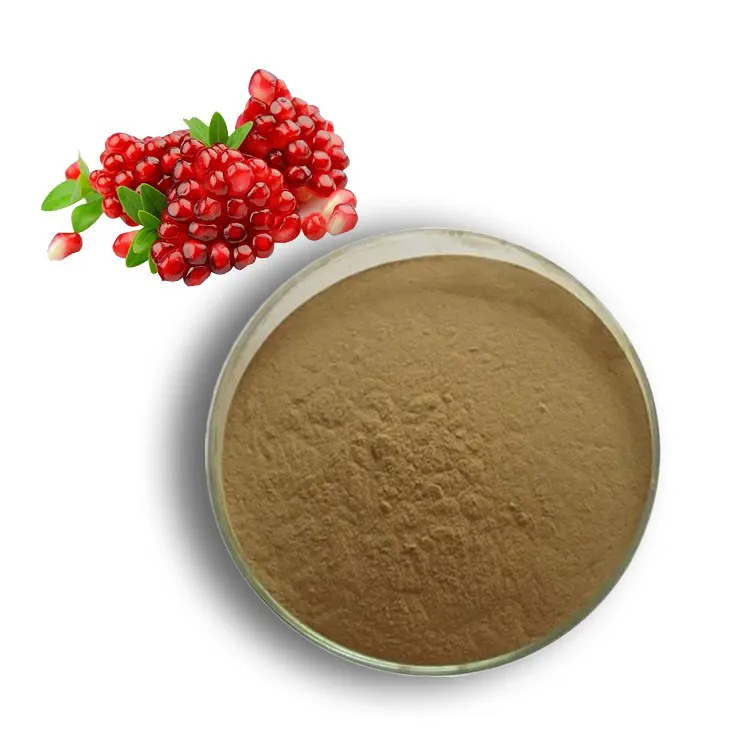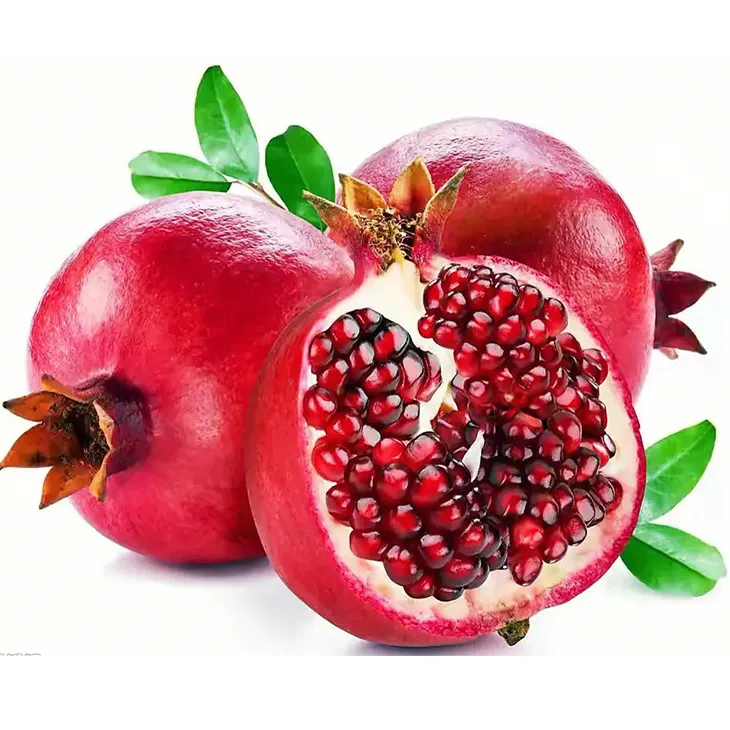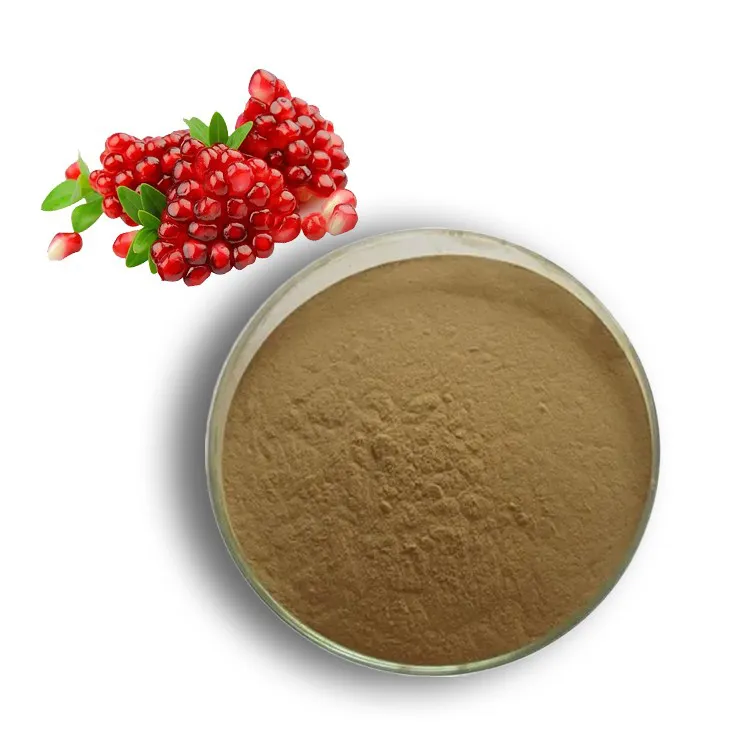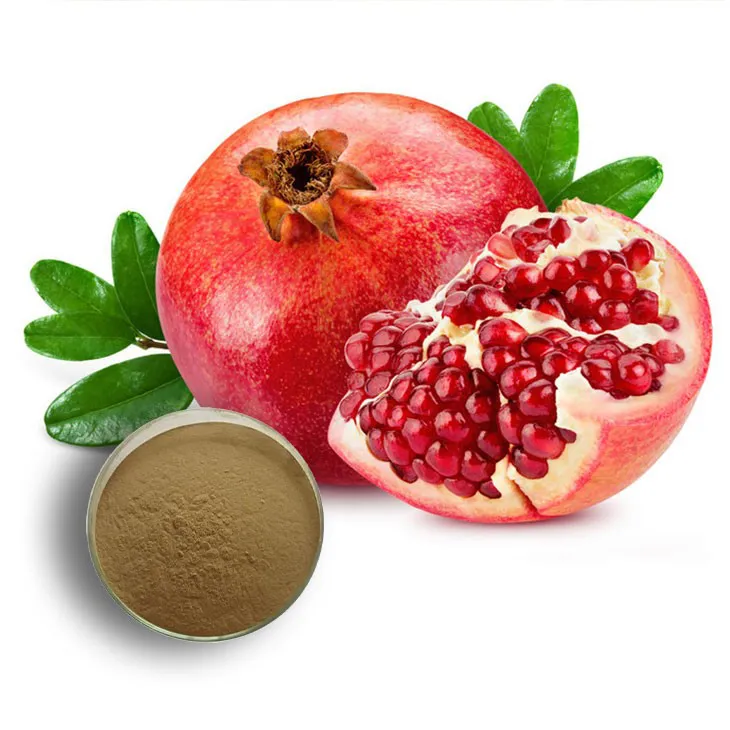- 0086-571-85302990
- sales@greenskybio.com
Pomegranate Extract Suppliers.
2024-11-26

1. Introduction
Pomegranate Extract has emerged as a highly sought - after ingredient in numerous industries. Its popularity can be attributed to the various health benefits associated with pomegranates. The extract is rich in bioactive compounds, making it a valuable addition to products in the food, nutraceutical, cosmetic, and pharmaceutical industries. As the demand for Pomegranate Extract continues to grow, the role of reliable suppliers becomes increasingly important.

2. Quality of Pomegranate Extract
High - quality extraction is the cornerstone of a good pomegranate extract supplier. The extraction process must be carefully designed to retain the key beneficial compounds present in pomegranates.
2.1. Beneficial Compounds
Pomegranates are known for their high content of punicalagins and ellagic acid. These compounds are responsible for many of the health - promoting properties of pomegranate extract. Punicalagins are powerful antioxidants that can help protect cells from damage caused by free radicals. They also have anti - inflammatory properties, which may be beneficial in reducing inflammation in the body. Ellagic acid, on the other hand, has been studied for its potential role in preventing certain types of cancer, as well as its antioxidant and anti - inflammatory effects.
2.2. Advanced Extraction Techniques
Suppliers should utilize advanced extraction techniques to ensure the integrity of these compounds. For example, some suppliers may use supercritical fluid extraction, which is a relatively clean and efficient method that can extract the desired compounds without using harsh solvents. Another technique is solvent extraction, where solvents such as ethanol or water are used to extract the bioactive components. However, it is crucial that the solvents are of high quality and are removed completely during the purification process to avoid any potential contamination.
2.3. Quality Testing
A reliable supplier will also conduct extensive quality testing on their pomegranate extract. This includes testing for the presence and concentration of key compounds like punicalagins and ellagic acid. Additionally, they will test for purity, ensuring that there are no contaminants such as heavy metals, pesticides, or other harmful substances. High - performance liquid chromatography (HPLC) is a commonly used method for analyzing the composition of pomegranate extract. Through such testing, suppliers can guarantee that the extract they provide meets the required quality standards.

3. Stable Supply Chain
A stable supply chain is another vital aspect that distinguishes a good pomegranate extract supplier.
3.1. Sourcing of Pomegranates
Suppliers need to have a reliable source of high - quality pomegranates. This can be achieved in different ways.
- Some suppliers may rely on local orchards. Working with local growers has several advantages. It can reduce transportation costs and time, ensuring that the pomegranates are fresh when they reach the extraction facility. Moreover, it can support the local economy and promote sustainable farming practices in the area.
- Other suppliers may choose to import pomegranates from different regions. This allows them to access a wider variety of pomegranate cultivars, which may have different profiles of bioactive compounds. However, importing also comes with challenges such as ensuring proper storage and transportation conditions to maintain the quality of the fruits during transit.
3.2. Relationships with Farmers and Growers
Regardless of the sourcing method, building strong relationships with farmers and growers is essential. Suppliers should work closely with them to ensure that the pomegranates are grown under optimal conditions. This may involve providing guidance on farming practices, such as proper irrigation, fertilization, and pest control. By having a good relationship, suppliers can also negotiate better prices and ensure a steady supply of pomegranates. For example, they can enter into long - term contracts with growers, which gives both parties security. In addition, suppliers can support farmers in times of crop failure or other difficulties, which in turn helps to maintain the stability of the supply chain.

4. Compliance with Industry Standards and Regulations
In the highly regulated industries where pomegranate extract is used, compliance is non - negotiable.
4.1. Quality Control Measures
Suppliers must adhere to strict quality control measures throughout the production process. This starts from the sourcing of pomegranates, where they need to ensure that the fruits meet certain quality criteria, such as ripeness and freedom from diseases. During the extraction process, parameters such as temperature, pressure, and extraction time need to be carefully controlled to ensure consistent product quality. After extraction, the purified extract should be tested again for quality and purity. Any deviation from the set standards should be addressed immediately to prevent sub - standard products from reaching the market.
4.2. Labeling Requirements
Accurate labeling is also a crucial part of compliance. The label on pomegranate extract products should clearly state the contents, including the concentration of key compounds such as punicalagins and ellagic acid. It should also provide information on the source of the pomegranates, the extraction method used, and any potential allergens. In addition, if the product is intended for a specific use, such as dietary supplements or cosmetics, it should comply with the relevant regulatory requirements for labeling in those industries.
4.3. Certifications
To prove the safety and quality of their pomegranate extract products, suppliers may need to obtain relevant certifications. For example, in the food and nutraceutical industries, certifications such as Good Manufacturing Practice (GMP) and Food Safety Management System (FSMS) are highly regarded. These certifications ensure that the production facilities meet certain hygiene and quality standards. In the cosmetic industry, suppliers may need to comply with regulations such as the EU Cosmetics Regulation and obtain relevant certifications. These certifications not only help suppliers to meet regulatory requirements but also enhance their credibility in the market.

5. Conclusion
In conclusion, when looking for a pomegranate extract supplier, businesses and consumers should consider multiple factors. The quality of the extract, the stability of the supply chain, and compliance with industry standards and regulations are all crucial aspects. By carefully evaluating potential suppliers based on these criteria, they can ensure that they are obtaining a high - quality pomegranate extract that is safe and reliable for their intended use. Whether it is for formulating a new food product, a nutraceutical supplement, or a cosmetic item, choosing the right supplier is the first step towards success.
FAQ:
What are the important factors to consider when choosing a pomegranate extract supplier?
When choosing a pomegranate extract supplier, three main factors should be considered. Firstly, the quality of the extract is crucial. Suppliers should use advanced extraction techniques to preserve beneficial compounds like punicalagins and ellagic acid with antioxidant, anti - inflammatory and potential health - promoting properties. Secondly, a stable supply chain is necessary. They need to source high - quality pomegranates continuously, either from local orchards or through imports, which demands good relationships with farmers. Finally, compliance with industry standards and regulations, including strict quality control and accurate labeling, is essential. They may also need relevant certifications to prove product safety and quality.
How can a pomegranate extract supplier ensure the high quality of the extract?
A pomegranate extract supplier can ensure high - quality extract by using advanced extraction methods. These methods are designed to preserve the important compounds in pomegranates, such as punicalagins and ellagic acid. By carefully controlling the extraction process, the supplier can maintain the antioxidant, anti - inflammatory, and other beneficial properties of these compounds, thus ensuring the overall high quality of the pomegranate extract.
Why is a stable supply chain important for a pomegranate extract supplier?
A stable supply chain is vital for a pomegranate extract supplier. If the supplier wants to produce a consistent product, they need a continuous supply of high - quality pomegranates. Whether these pomegranates are sourced from local orchards or imported from other regions, a stable supply is necessary. To achieve this, the supplier must build strong relationships with farmers and growers. Without a stable supply chain, the production of pomegranate extract may be interrupted, leading to inconsistent product quality and availability.
What kind of industry standards and regulations should a pomegranate extract supplier comply with?
A pomegranate extract supplier should comply with various industry standards and regulations. This includes strict quality control measures during the manufacturing process. For example, they need to ensure proper handling and extraction procedures. Accurate labeling is also crucial, which should clearly state the ingredients, origin, and any potential benefits or risks of the product. Additionally, the supplier may need to obtain relevant certifications, such as those related to food safety or quality management, to prove that their pomegranate extract products meet the required safety and quality levels.
How can businesses verify if a pomegranate extract supplier is reliable?
Businesses can verify the reliability of a pomegranate extract supplier in several ways. They can first check if the supplier adheres to industry standards and regulations, such as proper quality control and accurate labeling. Second, they can inquire about the supplier's supply chain stability, including the source of pomegranates and relationships with growers. Third, they can ask for samples to test the quality of the extract, especially the presence of key beneficial compounds. Finally, they can look for relevant certifications that the supplier may hold, which are indicators of their commitment to safety and quality.
Related literature
- The Health Benefits of Pomegranate Extract: A Review"
- "Quality Control in Pomegranate Extract Production"
- "Supply Chain Management in the Pomegranate Extract Industry"
- ▶ Hesperidin
- ▶ citrus bioflavonoids
- ▶ plant extract
- ▶ lycopene
- ▶ Diosmin
- ▶ Grape seed extract
- ▶ Sea buckthorn Juice Powder
- ▶ Beetroot powder
- ▶ Hops Extract
- ▶ Artichoke Extract
- ▶ Reishi mushroom extract
- ▶ Astaxanthin
- ▶ Green Tea Extract
- ▶ Curcumin Extract
- ▶ Horse Chestnut Extract
- ▶ Other Problems
- ▶ Boswellia Serrata Extract
- ▶ Resveratrol Extract
- ▶ Marigold Extract
- ▶ Grape Leaf Extract
- ▶ blog3
- ▶ blog4
-
Chinese Withania somnifera Extract Factory.
2024-11-26
-
中国松树皮提取物粉粉末供应商
2024-11-26
-
High - quality Marigold Extract Products.
2024-11-26
-
100% Pure Natural Mango - Flavored Powder.
2024-11-26
-
Shikone Extract
2024-11-26
-
Rose Hip Extract
2024-11-26
-
Elderberry Extract
2024-11-26
-
Hesperidin
2024-11-26
-
Lemon Juice Powder
2024-11-26
-
Quercetin
2024-11-26
-
Artichoke Leaf Extract
2024-11-26
-
Feverfew Extract
2024-11-26
-
Dan Shen Root Extract/Salvia Root Extract
2024-11-26
-
Curcumin
2024-11-26





















